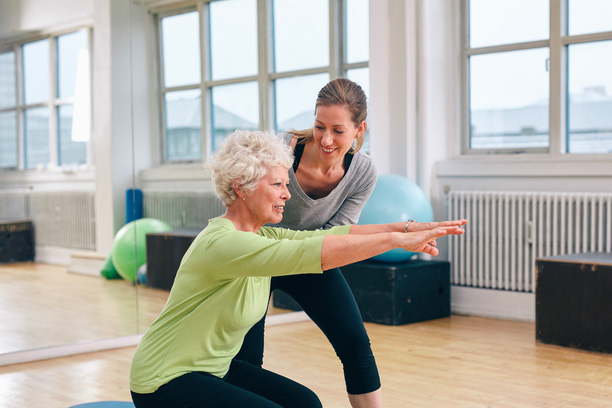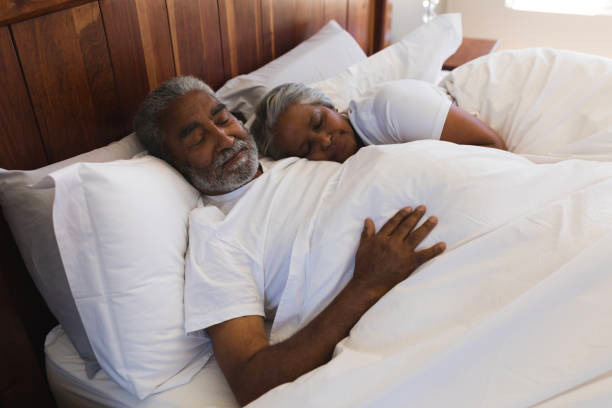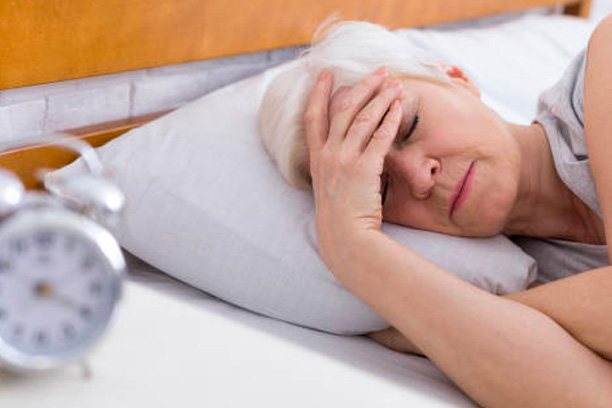How Sleep Changes as You Get Older
Do you find that you don’t sleep as well as you used to? That you wake up more tired than you did when you were younger? You’re not alone. As we get older, our sleep patterns change.
Sleep Hormone Production Changes When Getting Older
There are many hormones that effect sleep, including melatonin, cortisol, and growth hormone.
Melatonin
Melatonin is a hormone that helps to regulate the body’s sleep-wake cycle. Our bodies produce less melatonin when we age. Levels of the neurotransmitter serotonin, which helps regulate melatonin production, also naturally decline with age. You can supplement your melatonin with over the counter melatonin supplements to aid in getting a better night’s rest.
Cortisol
Cortisol is a stress hormone that can make it difficult to fall asleep and stay asleep. It can also lead to weight gain and other health problems. There are a few things you can do to help lower your cortisol levels before bedtime. Exercise is one of the best ways to lower cortisol levels. It can be as simple as a brisk walk around the block or a more intense workout at the gym. Avoiding caffeine and eating a healthy diet are also good ways to reduce cortisol levels.
Growth Hormone
As we get older, our bodies produce less growth hormone. This can lead to a decrease in muscle mass and an increase in body fat. It can also cause wrinkles and thinning skin. Getting enough sleep is essential for the production of growth hormone. A lack of sleep can also cause a decrease in growth hormone levels. Growth hormone replacement therapy can help people who are deficient in this hormone.
Age Related Changes Effect Sleep
Other age-related changes can also disrupt sleep. These include an increased risk for medical conditions that can cause insomnia, such as arthritis, Alzheimer’s disease, and Parkinson’s disease.

Menopause can also lead to sleep problems due to hot flashes and night sweats. And as people age, they tend to have more trouble falling asleep and staying asleep. Our sleep patterns change as we get older. We may wake up more frequently to go to the bathroom or because of pain. And our sleep patterns may become more fragmented, meaning that we don’t spend as much time in deep sleep. Therefore we tend to have less deep sleep and more light sleep. We may also wake up earlier than they used to. All of these changes can make it hard to get the restful sleep you need. And finally, many of us experience changes in our work and family life as we get older, which can lead to stress and anxiety that make it difficult to sleep.
Tips To Getting a Better Night’s Sleep When Getting Older
There are a number of things you can do to help yourself get a good night’s sleep, even as you get older.

- Stick to a regular sleep schedule as much as possible
- Create a relaxing bedtime routine
- Avoid caffeine and alcohol before bed
- Exercise regularly
- Limit screen time before bed
- Make sure your bedroom is dark, quiet, and comfortable.
If you follow these tips, you should be able to get the restful night’s sleep you need.
If you find yourself having difficulty sleeping, don’t hesitate to talk to your doctor. There are a number of potential causes of insomnia, and your doctor can help you identify any underlying health issues that may be contributing to your sleeplessness. Once any underlying problems are addressed, you should be able to sleep better. In the meantime, following these tips should help you get some much-needed rest. Sweet dreams!



